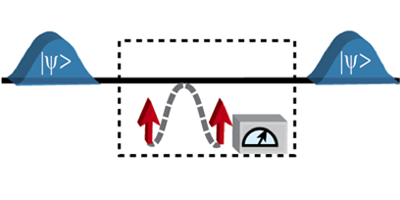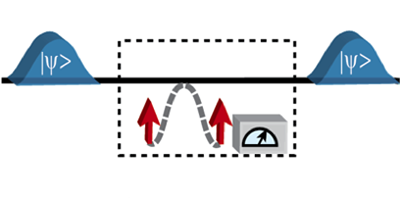The Certainty of Uncertainty
When first taking quantum mechanics courses, students learn about Heisenberg’s uncertainty principle, which is often presented as a statement about the intrinsic uncertainty that a quantum system must possess. Yet Heisenberg originally formulated his principle in terms of the “observer effect”: a relationship between the precision of a measurement and the disturbance it creates, as when a photon measures an electron’s position. Although the former version is rigorously proven, the latter is less general and—as recently shown—mathematically incorrect. In a paper in Physical Review Letters, Lee Rozema and colleagues at the University of Toronto, Canada, experimentally demonstrate that a measurement can in fact violate Heisenberg’s original precision-disturbance relationship.
If the observer affects the observed, how can one even make such a measurement of the disturbance of a measurement? Rozema et al. use a procedure called “weak” quantum measurement: if one can probe a quantum system by means of a vanishingly small interaction, information about the initial state can be squeezed out with little or no disturbance. The authors use this approach to characterize the precision and disturbance of a measurement of the polarizations of entangled photons. By comparing the initial and final states, they find that the disturbance induced by the measurement is less than Heisenberg’s precision-disturbance relation would require.
While the measurements by Rozema et al. leave untouched Heisenberg‘s principle regarding inherent quantum uncertainty, they expose the pitfalls of its application to measurements’ precision. These results not only provide a demonstration of the degree of precision achievable in weak-measurement techniques, but they also help explore the very foundations of quantum mechanics. – David Voss





